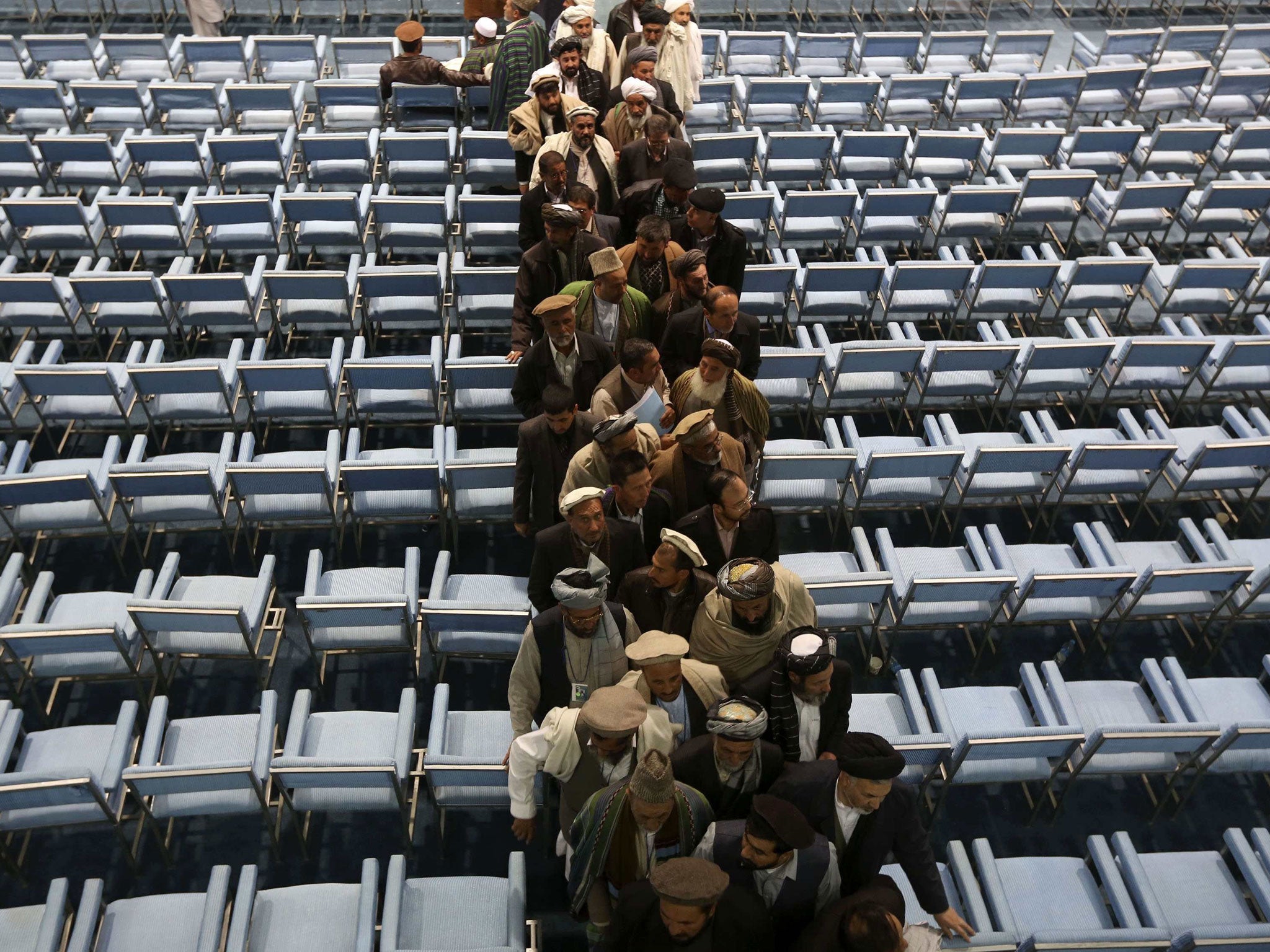Hamid Karzai overrules Afghanistan's Loya Jirga by refusing to sign US security deal until 2014

Your support helps us to tell the story
From reproductive rights to climate change to Big Tech, The Independent is on the ground when the story is developing. Whether it's investigating the financials of Elon Musk's pro-Trump PAC or producing our latest documentary, 'The A Word', which shines a light on the American women fighting for reproductive rights, we know how important it is to parse out the facts from the messaging.
At such a critical moment in US history, we need reporters on the ground. Your donation allows us to keep sending journalists to speak to both sides of the story.
The Independent is trusted by Americans across the entire political spectrum. And unlike many other quality news outlets, we choose not to lock Americans out of our reporting and analysis with paywalls. We believe quality journalism should be available to everyone, paid for by those who can afford it.
Your support makes all the difference.President Hamid Karzai has said that he will not sign a security deal with the US until next April’s elections, ignoring a recommendation by the Loya Jirga of elders that he do so this year.
His refusal puts in doubt whether the US will keep troops in the country after foreign combat forces withdraw next year.
Although Mr Karzai did not spell out his reasons for deferring its signature until after the April 5 elections, the move was a slap in the face to US officials who had repeatedly asked for a deal by the end of the year.
The US administration has insisted the deal be finalized by the end of next month, warning that planning for a post-2014 military presence may be jeopardized if it is not approved. US Secretary of State John Kerry and Defense Secretary Chuck Hagel both asked last week that it be signed by the end of the year.
Failure to do so could be the final blow to the Bilateral Security Agreement, leaving the Americans without a legal basis to keep forces in the country for up to a decade to train and mentor Afghan troops who remain ill-prepared to face a persistent Taliban insurgency.
The US has said it will pull all its forces out of Afghanistan without it, as it did when Iraq failed to sign a similar agreement. Most of America's allies have also said they will pull out their troops in without the deal, a withdrawal that could put at risk more than $8 billion (£5 million) a year pledged by the international community for Afghan security forces and the country's development.
After negotiators hammered out compromises on several issues, Karzai had called the 2,500 tribal elders and regional leaders to the capital to debate the draft deal in a consultative assembly known as a Loya Jirga.
The four-day assembly had the option of asking for changes or rejecting the agreement. Instead Karzai added a new wrinkle by announcing on the opening day Thursday that he wanted delegates to endorse the deal but he would not sign it.
AP
Subscribe to Independent Premium to bookmark this article
Want to bookmark your favourite articles and stories to read or reference later? Start your Independent Premium subscription today.
Join our commenting forum
Join thought-provoking conversations, follow other Independent readers and see their replies
Comments